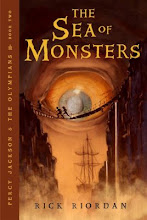Perspective is a funny thing. This week has felt “warm,” despite the fact that high temperatures haven’t crept past the 30s. Part of that is because the sun is out these days, and part is because highs were in the teens last week. Anyway, the sunshine and “warm” weather has inspired me, and you get to be the lucky victims of this inspiration…
Still only about 3/4 finished with my latest read, but I thought I’d start some ancillary posts to fill in the gaps between book reviews. This post marks my first attempt in that direction.
Admittedly, the whole review/rating process is pretty subjective. People have individual tastes that are impossible to ignore completely when opining on, well, pretty much anything. And because of those individual preferences, multiple reviews on the same product or service tend to vary widely (particularly in the case of “average Joe” reviews.)
Take movie reviews, for example. Yahoo! Movies is good at showing rating averages as well as individual scores and reviews, from both critics and regular viewers. The average is just that: an average. Delve a bit deeper to see the individual ratings, and you’ll see that those scores (letter grades, for Yahoo!) usually span the gamut for any movie. Even movies widely lauded will still nab a few F’s from individual viewers. (Critics tend to be more consistent, but only slightly so.) For books, you can find a similar phenomenon over at Goodreads.
Does this mean that reviews and their scores are worthless? Not exactly. Actually, not at all. If they were, people wouldn’t be making a living off of reviewing movies/books/video games/etc. So the idea of reviewing a product or service and sharing your experience with the world must have merit. Isn’t that why we have Ebert & Roper, IGN, and even this blog? :)
So then, it comes down to the quality of the review. To me, this equates to three key aspects:
1.) Defined criteria. The reviewer needs to be clear on the specific standards upon which the final score/verdict is based. That doesn’t mean that we should expect a bulleted list at the top of every review, but in reading through it, those criteria should be explained.
2.) Substantial detail. The review needs to achieve that balance of providing examples to back up its score without becoming too cumbersome with detail or crossing over into Spoilerland.
3.) “Relative” impartiality. Any set of criteria that is too skewed or specific to one’s particular tastes risks alienating a wider audience. I promise to not say a book is bad because it didn’t have bunnies in it. I do acknowledge that demonstration of good writing skills is a standard that may not be as important to a lot of you. Sorry, that’s one I can’t back down on. :) (It’s one of the reasons why I will probably never read through Stephanie Meyer’s books. Again, apologies. Just my flavor.)
So there you have it. My standards when deciding whether to listen to a review or chuck it out the window. I’ll probably post my informal set of criteria for opining on the books I read at some point. What constitutes a high-quality review for you?
Thursday, December 17, 2009
Subscribe to:
Post Comments (Atom)






No comments:
Post a Comment